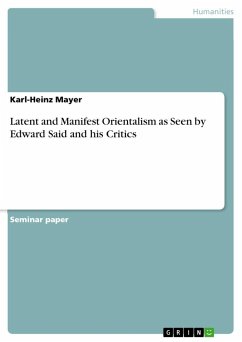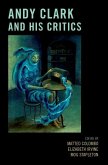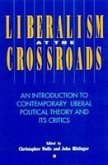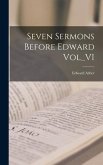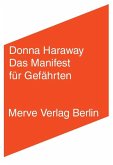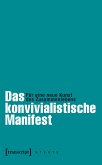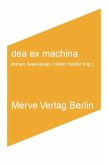Seminar paper from the year 2012 in the subject Philosophy - Philosophy Beyond Occidental Tradition, grade: 1.0, University of Vienna (Institut für Philosophie), course: Seminar Texte zur postkolonialen Theorie, language: English, abstract: Edward Said (1935-2003) has been widely praised as a leading thinker of post-colonialismand even as one of its founding figures. Moreover, he "became one of the most widely known,and controversial, intellectuals in the world during his lifetime" (Ashcroft 2009, 1). His bestknown book, Orientalism (1978), is a milestone in post-colonial theory and was one of thefirst examples for combining French critical theory with Anglophone cultural and textualtradition (cf. Castro Varela 2005, 31). It actually paved the way for differentiating criticalPostcolonial Studies from the earlier Commonwealth Literary Studies with their uncriticalcontinuation of colonial prejudices (cf. ibid, 23). Even Daniel Varisco (2007), who argues fora rather critical view ofSaid's work, concedes that "Said's book stimulated a necessary andvaluable debate among scholars who study the Middle East, Islam, and colonial history."(Varisco 2007, XII).Since a 10-page term paper could never do justice to a literary and scientific masterpiece likeOrientalism, this paper picks out just a small detail of its rich content: In the third and lastchapter of Orientalism, Said introduces a distinction between two forms of Orientalism,latent and manifest. The meaning of this dichotomy does not reveal its full significance atfirst reading. What exactly did Said have in mind by using this terminology - perhapsunconsciously in addition to what he writes about it on some 20 pages of his book?Several scholars have commented on this distinction and its significance for Said's work. Thispaper will build on that material and attempt to analyze and summarize what can be foundout about the dichotomy. Particular interest will be devoted to the philosophical roots Saidwas referring to when writing about latent and manifest Orientalism.- Was he influenced by Arab Philosophy in using the dichotomy?- Did he use the terms in the psychoanalytical sense introduced by Sigmund Freud andalso used by Jacques Lacan?- How do some of Said's critics, like Maria do Mar Castro Varela, Daniel Martin Variscoor John McLeod interpret and evaluate the distinction?

